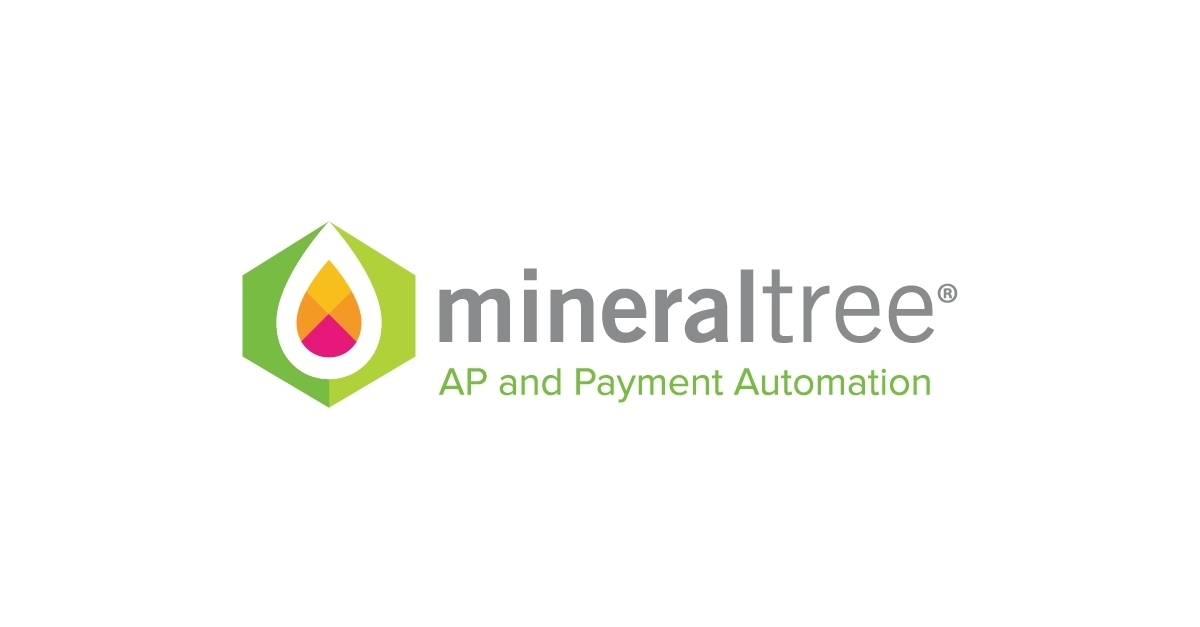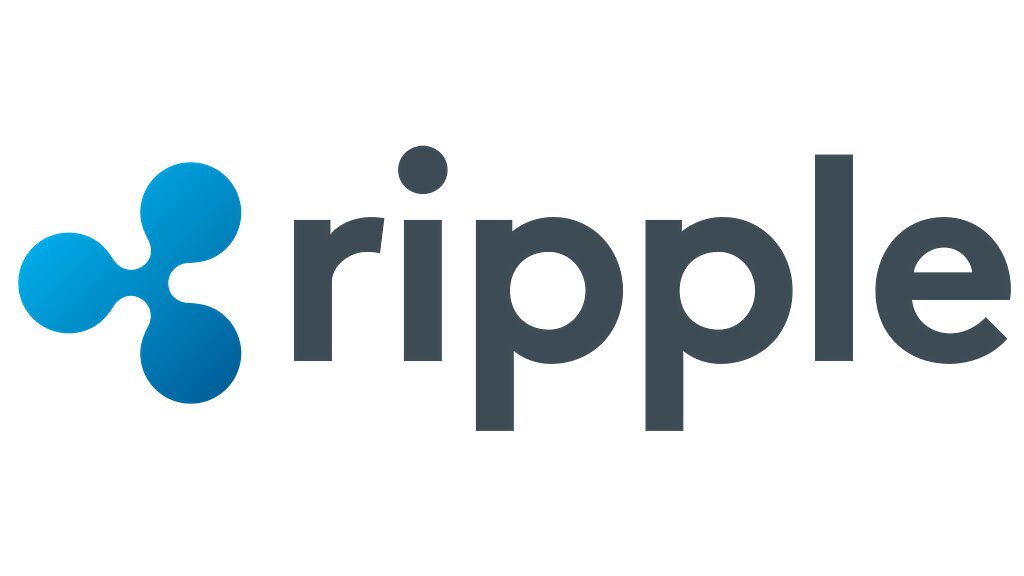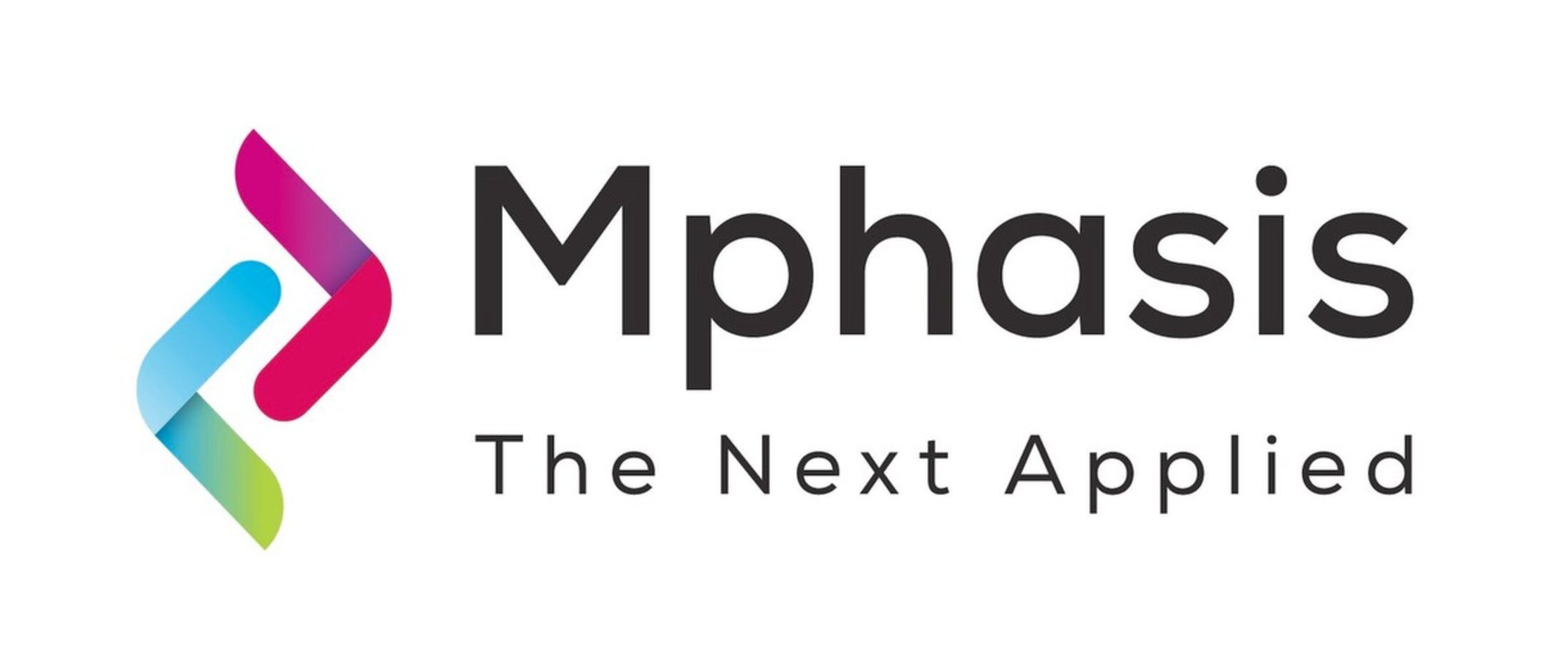Published
- 02:00 am

MineralTree, an Accounts Payable (AP) and payments automation solution provider, today announced the addition of automated PO/invoice matching for Sage Intacct, a cloud-based accounting and financial management platform. The new capability equips MineralTree customers using Sage Intacct to automatically match incoming invoices against purchase orders or receipts and then insert them into users’ internal workflows for invoice approval and payment. As a result, Intacct users can save substantial finance staff time, reduce payment processing costs, and eliminate overcharges and double payments due to manual error.
The announcement coincides with the start of Sage Intacct Advantage, the premier user event for Sage Intacct customers, partners, and prospects which takes place virtually Oct. 20-21. MineralTree will be a featured presenter at the event and will also be part of the Advantage Sponsor Showcase.
For many middle-market businesses, manually matching and reconciling incoming invoices against purchase orders is a tedious and error-prone process that consumes AP staff time and results in a variety of costly errors including overcharges, double payments, and late fees.
As part of MineralTree’s end-to-end AP and payments automation solution, automated PO matching eliminates those challenges and increases financial control while improving cash management.
“As companies grow and look to better manage their spend, the use of purchase orders becomes standard operating procedure, especially in industries such as manufacturing, retail, and healthcare,” said Elle Kowal, Chief Product Officer at MineralTree. “With the addition of automated PO matching for Intacct, we can better serve the needs of larger middle-market businesses and continue to expand the footprint and value of their AP automation efforts.”
Thanks to its deep, two-way integration with Sage Intacct, MineralTree uniquely supports two PO matching workflows:
- Standard matching - MineralTree automatically syncs POs from Intacct. When new invoices are received, MineralTree’s PO matching algorithm intelligently links line-items from invoices to line-items in purchase orders and automatically applies the proper coding.
- Receipt-based matching - For customers who use the Intacct PO Receivers workflow to track receipt of ordered items, MineralTree can uniquely match invoice line-items against received quantity. With receipt-based matching, customers can prevent payment from being made before goods have been received.
With MineralTree’s flexible invoice approval routing rules, users can define approval workflows for both PO and non-PO invoices. They can also take advantage of a dedicated exception handling workflow for mismatched PO invoices to ensure quick resolution. Completing the loop, MineralTree automatically syncs vendor invoices to Sage Intacct with links to the original purchase order, ensuring that the PO-to-Invoice reconciliation is complete.
Sage Intacct is the latest ERP system for which MineralTree supports Automated PO Matching. The feature is also currently available for NetSuite, Sage 100, and Xero, along with hundreds of leading ERPs through MineralTree’s Universal Connector.
Intacct Advantage 2020 Presentation: Smarter, Faster, Better AP with AP Automation for Sage Intacct
Webinar: A Guide to Automating B2B Payments for Strategic Advantage
Industry Report: The State of AP 2020: A Research Report
Product Overview: End-to-End AP Automation – How it Works
Related News
- 05:00 am

FIS® (NYSE: FIS) today announced the latest expansion of its global footprint in the Latin American market by securing domestic card scheme acquiring licenses in Argentina. With the ability to offer local merchants in-country payment processing, Argentine sellers will have access to a broader set of Worldpay from FIS merchant solutions products and services for online commerce.
Worldpay processes billions of transactions annually across 146 countries and more than 300 payments types in 126 currencies and will be the largest global acquirer with a domestic processing capability in Argentina. Previously, to acquire payments locally in Argentina, merchants would have to work with one of two providers, however, recent regulatory changes have prompted an opening up of the market which has allowed new entrants into the country. The expansion is part of Worldpay’s global growth strategy.
The rapid expansion of digital technology and the globalization of online commerce—accelerated by the COVID-19 pandemic—has increased the need for merchants to be able to operate at worldwide scale. With the eCommerce market in Argentina set to double by 2023, driven by mobile sales, merchants are moving to build reliable and secure online selling capabilities.
“It’s an exciting time to enter Argentina’s eCommerce market where mobile commerce growth is accelerating faster than almost anywhere in the world,” said Juan D’Antiochia, General Manager, LATAM, Worldpay from FIS. “Not only will local sellers benefit from our leading geographic footprint enabling them to sell internationally more easily than ever, the international market will now have a faster route to sell to Argentine consumers. With our smarter payments technology and single point of entry for global merchants to operate around the world, our new domestic acquiring capability in Argentina expands on our promise to enable payments the world over.”
Because of Worldpay’s expansive global footprint, the company’s domestic acquiring capability will give local merchants the ability to trade across borders through a single point of integration as well as a more seamless payments experience wherever they do business. Further, with this expansion, Worldpay is helping open the region to global players looking to enter the market.
Related News
- 01:00 am

NICE today announced that Alfa-Bank Russia has deployed its Real-Time Authentication (RTA) solution, enabling seamless, instantaneous verification for its customers. A leading universal private bank in Russia, Alfa-Bank now authenticates clients calling into the contact center in real-time and without any need for code words or additional questions. NICE RTA, which includes Proactive Fraudster Exposure and Watch List capabilities, confirms customer identity in seconds, thus securing operations for the bank while allowing customers to quickly proceed with banking needs.
“The introduction of voice biometrics in our call center significantly enhances the security of many operations," said Olga Aslamova, Head of the Remote Client Support Department at Alfa-Bank. "This is especially important at a time when most clients prefer to receive all services remotely. If a client has passed a biometric impression with us, then even a compromise of the codeword - and scammers are good at stealing such information from clients - will not put a person’s money at risk."
Alfa-Bank is the largest universal private bank in Russia. With a customer base of 550 thousand corporate customers and 16 million individuals, Alfa-Bank combines digital innovation with an effective physical network. Without giving up live communication with customers, the bank is developing “departments of the future” with recognition based on biometrics and geolocation. Earlier in 2020, Alfa-Bank also announced its use of NICE Nexidia Analytics and NICE Quality Central to improve experiences.
"Protecting remote banking customers from increasingly sophisticated fraudsters is more critical than ever," John O’Hara, President, NICE EMEA, said. "Financial institutions such as Alfa-Bank understand that protecting customers and operations is just as important as ensuring the experience is seamless and instantaneous. We're excited to play a key role in helping Alfa-Bank nurture customer trust and provide service at the highest levels of excellence."
NICE Real-Time Authentication and Fraud Prevention provides end-to-end authentication and fraud prevention for contact centers. Based on voice biometrics, it automatically verifies the caller’s claimed identity within the first few seconds of a call through natural conversation with an agent. Leveraging its unique Single Voiceprint capability, RTA uses the same voiceprint across channels, allowing effortless authentication in the Interactive Voice Response (IVR) or mobile application as well. Based on unique machine learning technology, the Proactive Fraudster Exposure capability allows contact centers to automatically prevent fraud before it happens by proactively identifying previously unknown fraudsters and blocking them from committing fraud.
Related News
- 09:00 am

Paysend Group Ltd. is pleased to announce that Mr. Jairo Riveros has joined the company as Strategic Advisor to support the Paysend Management team for its global business development and corporate strategy.
Mr. Riveros is a strategist leader in financial services, passionate about financial inclusion, the use of data & analytics, and the need for new business models to challenge the status quo. Mr. Riveros experience includes leading the evolution of payments business models opening B2C and B2G channels, heading acquisition teams for fintech payments companies, and spearheading an investment platform to facilitate direct investor-placed capital and financing with operators and managers in the alternative investment arena.
Mr. Riveros was the Head of Market Models and Business Strategies for MasterCard Worldwide and its advisory unit, MasterCard Advisors. He has also served financial services clients through a C-suite consulting firm, Artemis Worldwide and as a Director in Monitor, Deloitte’s Financial Services Strategy practice. Previously Mr. Riveros was the Head of Strategy for AIMCo and he led the Strategic Planning team for TIAA.
Mr. Riveros holds a Global Executive MBA from NYU Stern, LSE, and HEC Paris (TRIUM).
"We are thrilled to have Jairo Riveros join the Paysend team as he brings great experience across Payments, Insurance, Pensions, and Investments, and valuable expertise to our advisory board," said Abdul Abdulkerimov, Founder & Chairman of Paysend. "He has had a very impressive career with a broad span of know-how having served as an executive, entrepreneur, consultant and trainer, and we look forward to his involvement as a Strategic Advisor going forward.”
Mr. Riveros stated: “I am very excited to be joining the Advisory Board at Paysend. The company has developed a state-of-the-art payments technology platform and has built a team with a track record of success. I am looking forward to helping the company navigate through its next phase of growth in a very exciting time for financial services.”
Related News
- 09:00 am

For the third straight year, Ripple is excited to share its annual Blockchain in Payments Report—a comprehensive look into the fintech industry and blockchain’s increasing role in payments.
This year’s report uncovered that not only is growth indeed possible for blockchain and digital assets initiatives, but that familiarity and positive sentiment continue to rise as well.
Across five global regions (North America, Europe, Middle East and Africa, Latin America and Asia Pacific), familiarity with blockchain and cryptocurrency ranges from a whopping 82%-94%. Meanwhile, positive sentiment in both continues to grow, with favorability among cryptocurrency somewhat stronger across regions (62%-75%) than blockchain (52%-73%).
The report has found that blockchain adoption and positive sentiment is growing, with 67% of respondents claiming that cryptocurrency is net reliable, and over one-third using blockchain for sending or receiving payments. It also revealed that nearly four-out-of-five (79%) of industry innovators reported growth in 2020, despite the pressures of COVID.
In terms of major takeaways, the Blockchain in Payments 2020 report proves three critical things:
- Blockchain payment solutions are scaling
- Digital assets are increasingly being considered for facilitating payments, especially when paired with blockchain technology
- Industry innovators are realizing significant growth, even amid COVID-19
Other key findings include:
- Adopters view blockchain as the fuel to business growth: 44% of respondents in production have recorded strong business growth in the past 12 months—while 45% of respondents that reported processing mostly digital transactions, recorded a large amount of growth.
- Interest in using digital assets has dramatically increased: 99% of respondents state that their business would consider using a digital asset, either as a currency itself or as a means to instantly process cross-border payments. This is up from 94% in 2018.
Scalable Blockchain Payment Solutions
Signs are positive that the flywheel is very much in motion across the globe when it comes to blockchain payment solutions. Slightly over one-third of the report’s respondents currently use blockchain technologies for sending or receiving payments for customers. Segmented by business type, the leading sector is digital banks, followed closely by retail banks, and money transmitter or payment providers.
Many of these institutions adopted blockchain technology to increase speed of payments, achieve high levels of reliability, improve data transparency and realize long-term operational cost savings. Blockchain solutions continue to scale as businesses introduce new services to existing customer segments or expand existing services into new regions.
Case in point: cross-border payments. As blockchain payments solutions continue to solve for many of the pain points related to cross-border payments, adoption has steadily grown. In fact, real time settlement for cross-border payments is seen as a business necessity for many, as well as in demand by consumers and businesses.
Blockchain is scaling beyond payments. Two prominent areas are Trade finance and Capital Markets, demonstrating that blockchain can be leveraged across the enterprise..
What’s clear is that blockchain proof of concepts are a thing of the past. Today, blockchain initiatives are leap frogging into production, moving swiftly along the adoption curve towards the late majority phase.
Digital Asset Adoption Increasing for Domestic and Cross-Border Payments
Overall, our report found that 67% believe cryptocurrency is net reliable. The Latin American market, in particular, expressed strong feelings regarding reliability. And while there’s still concern around cryptocurrency price volatility, transaction fees, lack of regulation and inflexible/expensive liquidity arrangements, these adoption hurdles didn’t prevent growth. In fact, nearly four out of five (79%) of businesses reported growth in 2020, with 44% citing innovation in payment tech as a key growth driver.
Across the board, the report found openness to more digital asset types —with a mix of bitcoin, central bank digital currency and stablecoin considered. Speed for both domestic and cross-border payments remains a key strength cited by the majority of markets. For those making cross-border payments using digital assets, financial inclusion, reduced cash usage and availability of liquidity are strengths that rank relatively high as well, but still below the hygiene transaction features of speed and security that make blockchain so popular for domestic payments.
For digitally-led businesses, transparency, security and networking are key benefits of adopting digital assets in payments. Those who are not digitally-led value more hygiene factors around speed.
All told, payments services providers believe that their customers–businesses and consumers– see value add in using digital assets.
Continued Industry Innovation Amid a Global Pandemic
Despite the ongoing COVID-19 pandemic continuing to generate economic hardship, innovation around blockchain and digital assets continued full-force in 2020. As mentioned above, 79% of businesses surveyed enjoyed growth this year despite the impact of COVID. This was mostly due to an expansion of products, services and target customers, as well as innovation in payment technology, which was a key growth driver for 44% of businesses.
Clearly, the global pandemic has resulted in payments services providers rethinking their business and operating models and adapting to the new digital-first world in order to survive. Survival includes preserving liquidity. Blockchain technology is being increasingly adopted in emerging markets and the availability of liquidity is among the underlying reasons. Furthermore, in a world with strict public health and social distancing guidelines, providers can leverage digital assets to provide a now necessary contactless experience .
Meanwhile, there’s an overall universal agreement from payments services providers that customers believe there is value created by using digital assets or blockchain technologies. With that perceived value proposition, it’s no wonder that use cases are growing apace.
What the Blockchain in Payments 2020 report makes abundantly clear is that blockchain is no longer an exotic, emerging technology. It is a mature technology that is being battle tested and continues to advance, both in terms of use cases and adoption. And if 2020 is any indication, blockchain will play an increasingly vital role in payments in the years to come.
You can download our full Blockchain in Payments 2020 report by clicking here.
Related News
- 06:00 am

Eventus Systems, Inc., a multi-award winning global trade surveillance and risk management software platform provider, today announced that Mercury Derivatives Trading, a global futures proprietary trading firm with more than 500 traders operating in markets on six continents, has deployed Eventus’ Validus platform for trade surveillance.
Mercury Derivatives, part of the Hertshten Group, has adopted the cloud-based version of Validus on a T+1 basis for market surveillance, including the ability to identify and address a wide range of potential market manipulation behaviors.
Elad Hertshten, a senior member of the Hertshten Group, said: "For us, we find that one of the most important things to survive long-term in this industry is to be fully compliant. Trade surveillance is a key component of that, including complying with the exchanges in which we operate."
Mercury Derivatives had been using a trade surveillance platform it had acquired, but it required significant resources to maintain, including an in-house developer. The firm planned to outsource next year but accelerated its plan after seeing Validus and participating in a custom demo. Hertshten said: “I’m a big believer in outsourcing what we’re not specialized in. The Validus technology is much more advanced than what we had. And we were particularly impressed with the people, hands-on support and professionalism. They delivered what they promised. Implementation was quick. The integration went smoothly, the communication has been great, and all timetables were met.”
Amit Bhanwani, Head of Business Operations, said: “The Validus platform is quite intuitive, and we really like the open architecture and ability to build any type of automation into Validus on the basis of our requirements. The information captured in the platform is very granular in nature so if we want to see the data in a different format, we can drill down and add it to our main user interface. That gives me confidence that any form of customization is possible in this system.”
Eventus CEO Travis Schwab said: “We’re delighted that Mercury Derivatives has put its confidence in us and look forward to a lasting relationship. Our focus from the beginning has been to offer clients not only superior, easy-to-use technology that meets the highest regulatory and firm standards, but also high-touch service they can’t find elsewhere.”
Headquartered in Mauritius, the Hertshten Group also has operations in India, Israel, the UK and Canada.
Related News
- 07:00 am

Paymentology, an innovative payment technology solutions provider, has entered the Middle East’s US$200 billion digital payments market by setting up its regional office in Dubai recently.
The company has been granted a license to operate by the Dubai Financial Services Authority (DFSA). This will help the United Kingdom-based financial technology (Fintech) solutions provider to offer more advanced digital and smart payments solutions to the banks, financial services providers, retailers and those process bulk transactions on a regular basis.
The Middle East and North Africa (MENA) region accounts for four million unique online shoppers. In the last three years, e-commerce transactions jumped ten-fold or 1000 percent from US$20 billion in 2017 to a whopping US$200 billion in 2020, according to a latest report.
Paymentology’s entry in the Middle East market comes at a time when demand for contactless and non-cash transactions soared after the COVID-19, prompting businesses and financial institutions to shift towards the digital and smart payment solutions.
“The Middle East region has a huge potential for growth in the financial technology and digital payments market and our entry in the region is well timed,” Shane O’Hara, CEO of Paymentology, said. “In order to penetrate the market, we decided to set up an office in the UAE – the most advanced country in the region in terms of technology adoption.
“This move enables us now to understand the ground reality and develop our growth strategy. We have already started to meet potential partners and customers to offer our innovative products that will change the way people make payments and the way financial institutions process those payments – seamlessly and in a very secured manner – that ensures data security of the clients.”
Covid-19 has accelerated the need for digitisation. With online purchases rising, consumers are now demanding customer-centric and flexible solutions. This coupled with a lack of trust and an ever evolving regulatory landscape, banks and financial institutions need to act fast to ensure compliance and deliver with operational agility. Paymentology’s platform enables its clients to be as agile and flexible as consumers demand.
The number of non-cash transactions surged nearly 14 percent from 2018-2019 to reach 708.5 billion transactions worldwide, the highest growth rate recorded in the past decade.
Global payments revenues recorded 6 percent growth to a whopping $1.9 trillion (Dh7 trillion) in 2018, according to McKinsey and Company’s Global Payments Report 2019. Europe, Middle East and Africa represented US$300 billion.
According to data gathered by LearnBonds.com, the worldwide digital payments market will jump to a record $4.7 trillion (Dh17.25 trillion) transaction value this year, with a 15.3 percent year-over-year growth rate. This rising trend is set to continue in the following years, with the entire market reaching $6.7 trillion (Dh24.5 trillion) by 2023.
Shane O’Hara says, the Middle East’s payment market is fast shifting to digital and mobile – through mobile apps.
“With nearly half of the population below the age of 25, we see a huge growth potential in the digital payments market, especially in a few years’ time when most of these tech-savvy young men and women start their career as professionals and businesspersons. They are not going to stand in a queue and wait for their numbers to make payments – that’s going to be history.
“And we are here on the ground to help payment processors to migrate their payments technology to the next level that is safe, secure and more effective,” he said.
Launched in 2015 and with accreditations to operate globally, Paymentology is firmly positioned as a leader in the payment processing world. It has been chosen by banks such as Revolut and Standard Chartered's Mox Bank to support their ground-breaking and highly customer centric payment programmes.
The technical expertise of its people and understanding of the banking space, mean that Paymentology is able to continuously innovate its services to enable our customers to deliver competitive payment products to the market.
Related News
- 05:00 am

Delta Capita, a global provider of managed services, solutions and consulting, announced that it has appointed Pete Mayberry as Managing Principal to lead client delivery.
Delta Capita has ambitious growth plans for its managed services offering, and Pete will be instrumental in delivering this for clients. Pete will take responsibility for implementing technology solutions for customers. He will help advance the firm’s mission for managed services and effectively assist organisations in reducing costs; by moving them away from their existing proprietary business operating models and towards mutualised managed services.
Pete brings over 15 years of delivery experience to the role. He joins from Capco where he spent the last nine years as the delivery lead for strategic clients and was directly responsible for successful delivery across multiple functions, including compliance, anti-financial crime and risk reporting. Before Capco, Pete spent six years as a warfare officer on Submarines.
Steve Vinnicombe, Head of Consulting & Solutions at Delta Capita, said: “Delta Capita’s ambition to re-invent the value chain of financial services will be underpinned by reliable, high-quality delivery. Whether that is consulting projects, implementation of our portfolio of technology solutions or the transition of a client to our managed services. Pete Mayberry is the ideal person to lead our Delivery team at Delta Capita. Not only does he have a first-class track record of managing complex change throughout the financial services value chain, he is equally adept at nurturing client relationships as well as building and leading teams. I’m looking forward to building something special with Pete.”
Pete Mayberry, Managing Principal for Delivery at Delta Capita, said: “I am really excited to be joining Delta Capita and to help reinvent the value chain of our customers. The provision of mutualised services is the future of the industry and I feel privileged to be playing a part in making this a reality for our clients”
During his career, Pete has successfully delivered programmes that have spanned finance IT, anti-financial crime and compliance. Solutions implemented include data warehousing, general ledger and RWA reporting, client onboarding and KYC, and client offboarding.
Related News
- 07:00 am

The B2B financial service Finom joined hands with Salt Edge, a leader in offering open banking solutions, to innovate business management processes for SMEs and professionals all over Europe.
Today open banking technology helps entrepreneurs manage their money more efficiently with their smartphones only. Finom is a B2B financial service developed to save time for SMEs, freelancers, and the self-employed in Europe via a seamless finance management experience.
Salt Edge Partner Program allows Finom to get access to PSD2 APIs of European banks in a compliant way, without lengthy integrations with thousands of banks across the continent. The collaboration with Salt Edge eliminates the need for Finom’s customers to enter data manually, fixing the pain point of tedious financial paperwork, well-known to many entrepreneurs and freelancers. Data aggregation fuels Finom’s platform features like dashboards with categorised expenses, multi banking environment, the e-invoicing, and e-reconciliation system. After the launch in Italy, Germany, and France (where the product is finalising its beta testing phase), other EU countries are on the horizon in 2021, so the access to more than 5000 financial institutions worldwide makes its expansion much quicker.
Alena Valovaya, Co-founder at Finom, said: "We are always researching the market and trying to find new ways to help customers manage their businesses, so we were looking for a solution that would enable us to provide multi banking functions on our platform. Our data aggregation system powered by Salt Edge is really something new. The way towards disruptive innovation is never easy, but we are sure that this is the right way to go. Entrepreneurs and professionals will love it because our product has been designed by the very same people who are supposed to use it."
Now Finom can be a main character in the open banking transformation, in turn accelerating and simplifying many processes for European businesses, while Salt Edge takes care of bank integrations, monitoring of APIs’ availability, normalisation of aggregated data, and other technical, security and compliance matters.
Andrei Scutari, Country Manager Italy at Salt Edge, comments: "At Salt Edge we work to make open banking a new reality for everyone and change the traditional banking experience for end users. This is why we are proud to help innovative companies like Finom blur the line between accounting, finance management and banking, showing that finance management can be easy with modern technologies. Online banking and secure data aggregation leave administrative paperwork behind, allowing SMEs to focus on their products and customers."
Related News
- 02:00 am

Mphasis, an Information Technology (IT) solutions provider specializing in cloud and cognitive services, today announced its partnership with R3, a leading global enterprise software firm, to jointly create innovative blockchain-enabled payment solutions and take them to market. Leveraging R3’s blockchain platform, Corda, Mphasis is strategically extending its Payments and Trade Finance technology solutions portfolio.
The partnership will focus on the acceleration of ALTATM, the digital payments and supply chain finance ecosystem formed by Mphasis to connect global enterprises, their supply chains, and a wide range of financial services and infrastructure providers into a modern value transfer network for global trade. The solution will provide Mphasis customers with access to a suite of next generation payments, working capital, and Foreign Exchange services that can be seamlessly deployed on Corda. Corda is a blockchainplatform that removes costly friction in business transactions across every industry, from financial services and healthcare to oil and gas. It enables institutions to transact directly using smart contracts, while ensuring the highest levels of privacy and security.
Recent events have highlighted the critical role that financial resilience plays in the sustainability of every supply chain, and the structural gaps that still exist in how financing is traditionally deployed. The innovative collaboration with R3 will allow small and medium sized businesses – who are typically the weakest link in most supply chains - to easily and digitally access working capital and other financial services that will help bolster and strengthen the entire supply chain. Due to the scalability, low-latency and encrypted environment in which Corda operates, the solution is optimized for business cases requiring institutional grade controls in reliability and availability.
“Through the ALTATM Payments Innovation Program – a part of the Sparkle Innovation Lab –, we have been working on various ways to transform traditional trade assets into tokenized, liquid instruments that can serve as the basis for a new digital, networked value transfer ecosystem,” said Srikumar Ramanathan, Senior Vice President & Global head - Industry Solutions Group (ISG), Mphasis. “The partnership with R3 will allow us to accelerate co-development and go-to-market on the Corda platform.”
By implementing a network-based model in what has traditionally been a linear, point-to-point approach, enterprises and their supply chains can unlock much needed working capital, while banks and financiers can significantly increase return on risk weighted assets (RWA) and scale supplier adoption.
“To support a meaningful and sustainable re-activation of global supply chains, we must embrace more flexible, efficient, and resilient models that enable a higher level of visibility and collaboration between banks, buyers, and suppliers. We are thrilled to be working jointly with Mphasis to create innovative blockchain-based payments solutions,” said Dorothy Copeland, Global head of Alliance and Ecosystems, R3.









